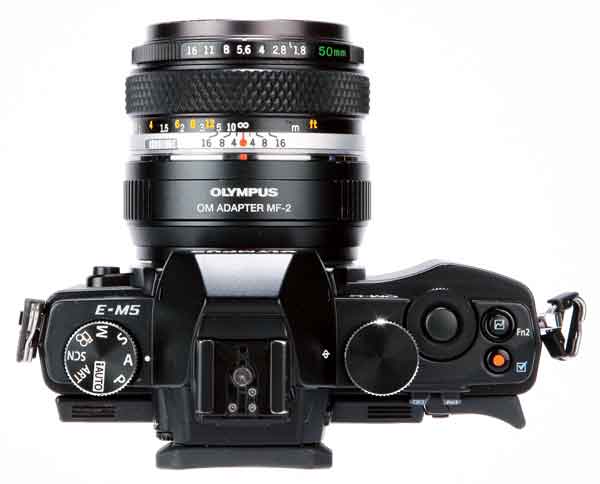The pairing of the new OM-D with the original OM lenses is a classic-looking combination that will please Olympus fans
For years, the one thing Olympus users were crying out for was a digital version of the classic OM camera. Finally this year, the OM-D E-M5 was announced, and while it didn’t answer every enthusiast’s whim, it certainly looks the part and produces some great images.
With the addition of the Olympus OM adapter MF-2, the camera can make use of the full range of manual-focus OM lenses, although the 2x crop factor of the micro four thirds system changes the function of some of them. Standard 50mm optics become ideal portrait lenses, equivalent to 100mm, while the wider 28mm prime lens acts like a standard 56mm optic.
In use
The camera’s electronic viewfinder provides an accurate view of the scene, and while focusing must be performed manually, the magnified view option allows fine-tuning for pin-sharp results. The Zuiko lenses require a large rotation for focusing, which helps with precision use – and even without magnification it is possible to find focus via the rear screen or EVF with little effort. Many older lenses are in fact even sharper than recent models, especially at mid-apertures.
Although many will choose to operate the camera manually, it is possible to work in aperture priority when using OM lenses. With the aperture set on the lens ring, and the camera in the A shooting mode, it will choose an appropriate shutter speed. Manual focus should be selected on the camera, as should ESP evaluative metering – spot metering is not recommended.
All manual OM lenses are claimed to be compatible with the adapter, although some macro models may require an extension tube. I used the Zuiko 50mm f/1.8 lens for some portraits and street shots, and found it both quick to use and extremely sharp. For those with a collection of OM lenses gathering dust in a cupboard, a new OM-D is perfect. And for those who already own an OM-D, then it is well worth investing in the OM adapter and some classic OM glass
MF-2 Around £150







